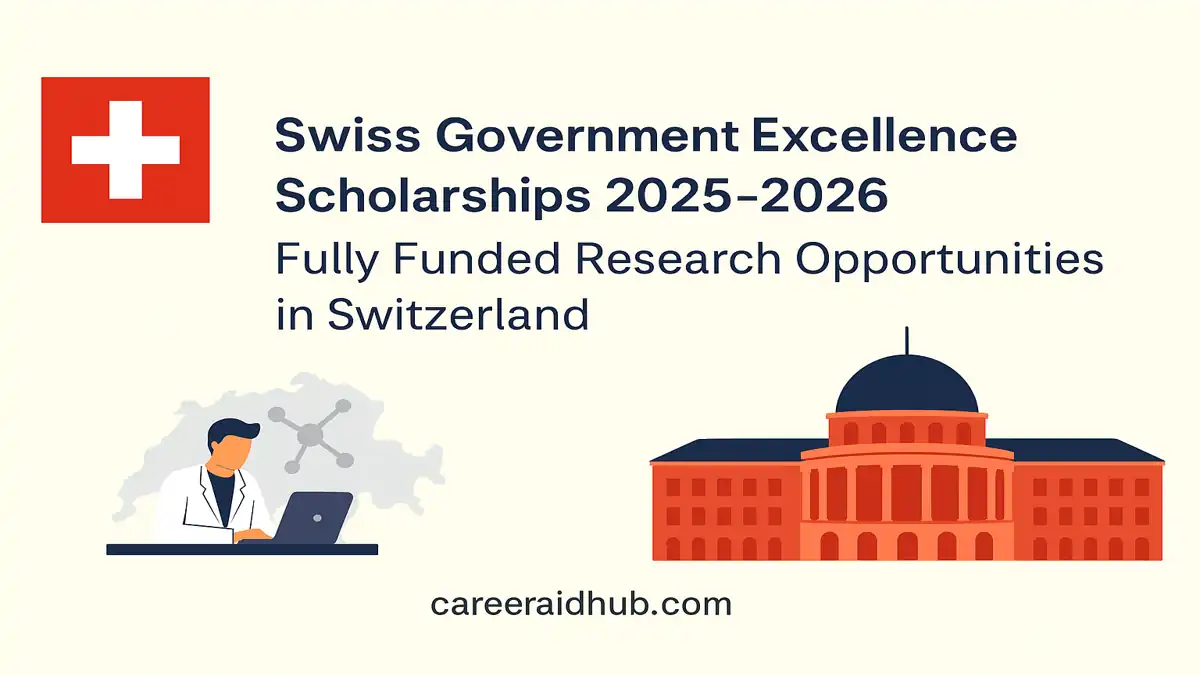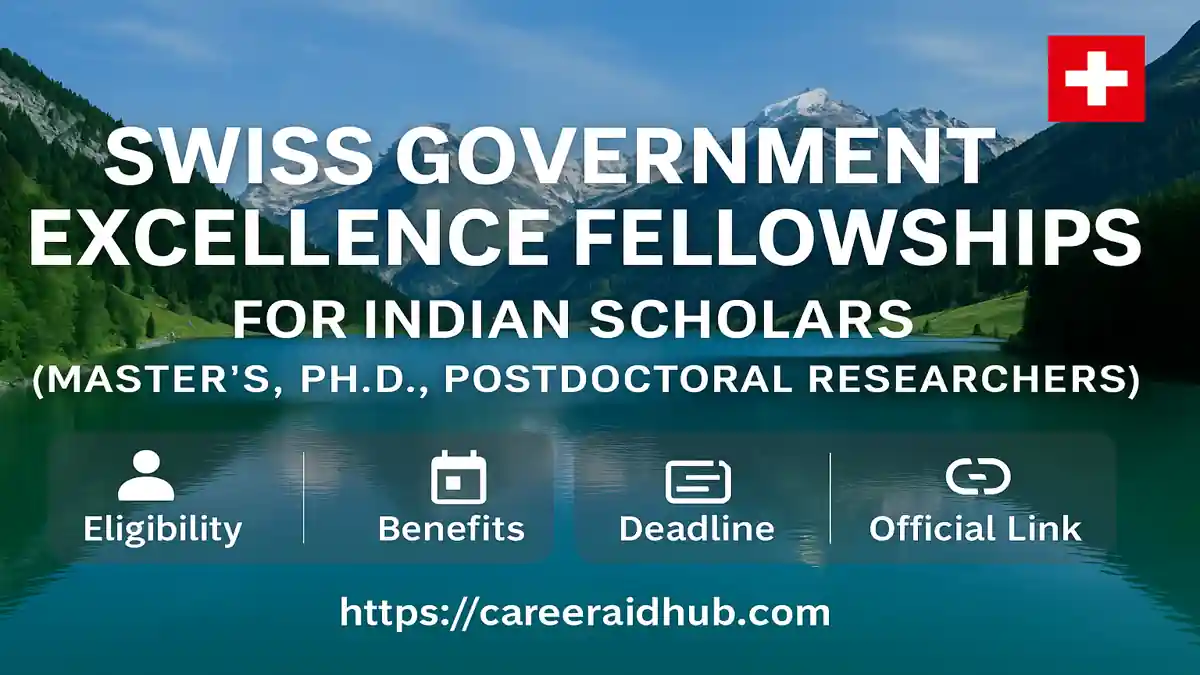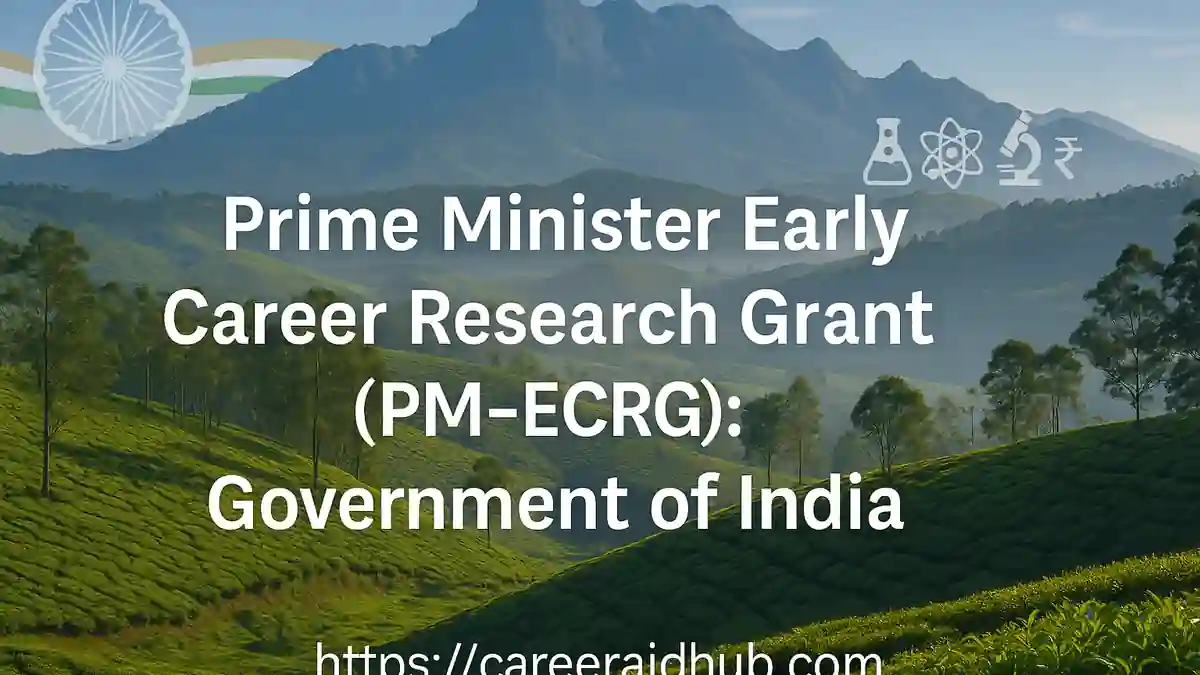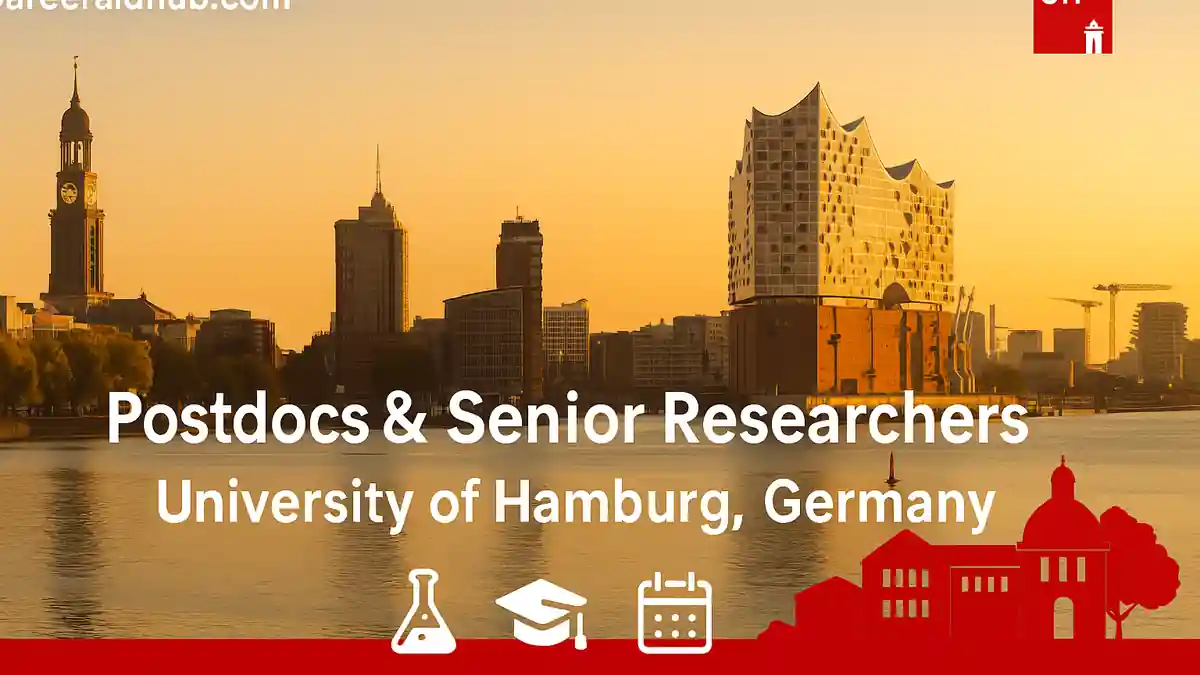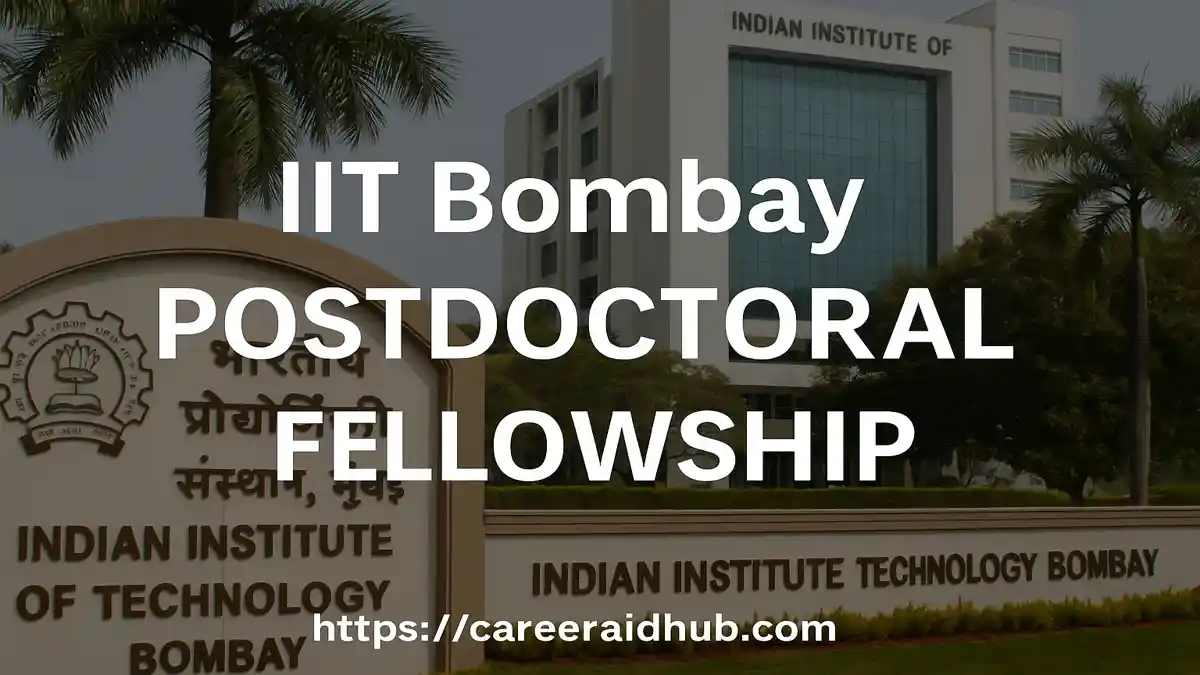The Human Frontier Science Program (HFSP) Postdoctoral Fellowships are among the most prestigious funding opportunities for early-career researchers in the life sciences. Since its inception in 1990, HFSP has supported over 8,500 researchers from more than 70 countries, 29 of whom later received Nobel Prizes—by financing high-risk, innovative projects that challenge traditional paradigms and promote interdisciplinary collaboration.
For the 2025 cycle, HFSP prioritizes transformative research that integrates biology with fields such as physics, chemistry, engineering, and computer science. This guide covers eligibility, application processes, financial benefits, and practical tips for submitting a competitive application.
Introduction
As research evolves, funding that fosters interdisciplinary approaches becomes crucial for understanding complex biological systems. HFSP Postdoctoral Fellowships not only provide generous financial support but also connect early-career scientists with a global network of top-tier institutions. With a focus on scientific rigor and cross-disciplinary innovation, the fellowship offers a career-defining opportunity for those ready to push boundaries.
About the Fellowship
Name of the Fellowship:
Human Frontier Science Program, HFSP Postdoctoral Fellowships 2025
Program Overview and Significance
Fellowship Tracks
HFSP is organized into two main tracks:
- Long-Term Fellowships (LTF)
- Focus: Traditional biological fields like molecular biology, neuroscience, and genetics.
- Objective: Supporttransformative, high-impact research in life sciences.
- Cross-Disciplinary Fellowships (CDF)
- Focus: Candidates with doctoral degrees in physics, chemistry, engineering, computer science, and mathematics.
- Objective: Employ non-biological expertise to tackle fundamental biological challenges.
Global Mobility and Network
A key feature of HFSP is international mobility: applicants must conduct research outside their home country, choosing host institutions in over 40 member nations (e.g., USA, Japan, Germany, the United Kingdom). This requirement nurtures scientific exchange and offers exposure to diverse research environments.
Career Impact
HFSP’s rigorous selection and robust funding enhance long-term career prospects by providing access to world-class mentorship, state-of-the-art facilities, and a network of influential scientists—an environment that has propelled many to leadership roles in research.
Eligibility Criteria
Core Requirements
- PhD Award: Must be conferred between September 25, 2022, and December 31, 2026. Exceptions (e.g., parental leave, medical issues, military service) are available.
- Publication Record: At least one lead-author paper (first or co-first) must be published or available as a preprint by the LOI deadline.
- Nationality and Host Country Rules:
- Open to all nationalities.
- Research must occur outside the applicant’s home country.
- Host institutions must be in an HFSP member country.
- Applicants should havespent no more than 12 months in the host country before fellowship activation.
Additional Conditions
- Collaborative Restrictions: Prior long-term collaboration (over 12 months) with the chosen host supervisor may disqualify the applicant.
- Host Institution: Must be affiliated with a non-profit organization (e.g., a university or recognized research institute).
- Field-Specific Requirements: For CDF applicants, the project should differ significantly from past academic work to ensure a genuinely interdisciplinary approach.
1) Nationality:
- Candidates who are not nationals of one of the HFSP member countries may apply only to work in a research institution within a member country.
- Candidates who are nationals of one of the HFSP member countries can apply to work in a research institution in any country.
- HFSP member countries: Australia, Austria, Belgium, Bulgaria, Canada, Croatia, Cyprus (EU part only), Czech Republic, Denmark, Estonia, Finland, France, Germany, Greece, Hungary, India, Republic of Ireland, Israel, Italy, Japan, Republic of Korea, Latvia, Lithuania, Luxembourg, Malta, The Netherlands, New Zealand, Norway, Poland, Portugal, Romania, Singapore, Slovakia, Slovenia, South Africa, Spain, Sweden, Switzerland, the United Kingdom, and the United States of America.
- A candidate cannot apply for a fellowship to work in the country of which they are a national.
2) Host Country:
- Candidates must propose to work in a country different from the one where they did their PhD research or previous postdoctoral research.
- They are not eligibleto propose to move from one laboratory to another within the same country.
- For institutions classified as international or extraterritorial (e.g., EMBL, ICPT, or ICGEB), the country where the laboratory is located is considered the host country.
- Candidates must not have worked in the proposed host country for more than 12 months (consecutively or not) by the activation date of the fellowship.
3) Doctoral Degree:
- A research doctorate (PhD) or a doctoral-level degree comparable to a PhD with equivalent experience in basic research (e.g., a research-based MD or medical PhD) must be conferred by the start of the fellowship.
- The degree is not required at the time of submission. However, the official PhD document (conferral date) must indicate a date within three years prior to the Full Proposal submission deadline, typically at the end of September.Who Can Apply
Target Audience:
- Early-career researchers in the life sciences seeking to pursue innovative and interdisciplinary research projects.
- Scientists from non-biological fields interested in transitioning to life sciences research.
Application Process
HFSP’s two-stage application is both thorough and competitive.
Stage 1: Letter of Intent (LOI)
- Timeline:
- Preparation can start as early as March 2025.
- Submission deadline: May 15, 2025,at 1 PM Eastern Time.
- Submission: Through the HFSP ProposalCentral system.
- Required Documents:
- A one-page research summary.
- An academic CV highlighting key publications.
- Details on the intended host supervisor and institution.
- A list of relevant publications.
- Selection: Approximately 10–15% of LOIs advance to the full proposal stage.
Stage 2: Full Proposal (Invitation-Only)
- Timeline:
- Full proposals are due by September 25, 2025, at 1 PM Eastern Time.
- Key Components:
- A comprehensive research plan outlining methodology, significance, and impact.
- A detailed letter from the host supervisor confirming resource availability.
- Two recommendation letters, ideally including one from the PhD advisor.
- Proof of PhD completion and electronic copies of lead-author publications.
- Evaluation:
- Scientific Merit (50%)
- Interdisciplinary Potential (30%)
- Host Lab Suitability (20%)
- Final decisions are made by the HFSP Board, with notifications in March 2026.
Application Checklist
- Academic CV: Educational background, research experience, and key publications.
- Research Proposal: A maximum two-page plan focusing on novelty and interdisciplinarity.
- PhD Certificate or Equivalence: Official documentation or a pending confirmation.
- Publications: PDFs of the required lead-author paper(s).
- Recommendation Letters: Submitted confidentially via ProposalCentral.
- Additional Documentation: As needed per host institution guidelines.
Focus Areas and Fields of Study
HFSP seeks proposals that integrate life sciences with emerging fields:
- Projects that combine traditional biological research with AI/machine learning, nanotechnology, or quantum biology.
- Topics spanning molecular biology, neuroscience, developmental biology, evolutionary biology, bioinformatics, biophysics, and biochemistry.
- Research that leverages non-biological fields—such as physics, chemistry, engineering, or mathematics—to provide new insights into longstanding biological issues.
Selection Process and Evaluation Criteria
Evaluation Stages
- LOI Screening:
- Experts evaluate the applicant’s publication record, research ideas, and interdisciplinary potential.
- Full Proposal Review:
- In-depth review by expert panels.
- Criteria:
- Scientific Merit (50%): Novelty, rigor, and impact.
- Interdisciplinary Potential (30%): Integration of multiple disciplines.
- Host Lab Suitability (20%): Facilities, mentorship, and overall research environment.
- Final selections are approved by the HFSP Board of Trustees.
Key Considerations
- Interdisciplinary Emphasis: Clearly explain how your background—especially for non-biological applicants—will contribute to solving major biological challenges.
- Host Lab Justification: Detail why the chosen host lab is the optimal environment for your project.
- Risk and Reward Balance: Highlight both the innovative potential and realistic challenges of your project.
- Preparation: Start early, secure strong recommendation letters, and adhere strictly to submission guidelines.
Practical Application Tips
- Start Early and Organize: Create a checklist of documents and deadlines.
- Craft a Clear Proposal: Clearly outline research objectives, methodology, and project impact.
- Gather Strong Recommendations: Obtain letters from referees who know your work well.
- Highlight Your Unique Perspective: Emphasize how your interdisciplinary skills will drive innovation.
- Justify the Host Fit: Provide detailed reasons why the host lab is ideal.
- Follow Guidelines: Adhere to all submission instructions to avoid disqualification.
Financial Benefits
The fellowship provides a three-year financial package that minimizes research-related financial burdens:
- Living Allowance: Approximately $50,000 per year (adjusted based on local cost of living).
- Research Grant: $20,000 per year for lab supplies, conferences, and travel.
- Relocation Allowance: Up to $8,000 as a one-time payment.
- Child Support: An additional $5,000 per year for fellows with children under 18.
- Parental Leave: Option for a 6-month paid extension.
In total, fellows receive roughly $200,000 over three years, ensuring a stable environment that enables focused, breakthrough research.
Timeline of the Application
- Opening Date: Updated application guidelines for the 2026 HFSP Fellowships will be available in the coming weeks.
- Deadline to Initiate a Letter of Intent: 7 May 2025
- Deadline to Submit a Letter of Intent: 15 May 2025
- Deadline to Submit Full Proposal: 25 September 2025 (only for invited applicants)
- Timeline for Results and Interviews: Details to be announced upon release of the 2026 application guidelines.
- Expected Start Date: April 2026
Contact Details
- Email: [email protected]
- Phone: +33 3 88 21 51 23
- Social Media:
- Twitter: @HumanFrontier
- LinkedIn: Human Frontier Science Program
Links to Apply and Resources
- Application Portal: HFSP ProposalCentral
- HFSP Official Website: https://www.hfsp.org
- Application Guidelines: HFSP Postdoctoral Fellowships
Life in Europe
Living in European Country as an HFSP Fellow offers an enriching experience combining world-class research opportunities with cultural exploration. The country provides access to top-tier research facilities, a vibrant scientific community, and a high quality of life. Fellows can enjoy efficient public services, diverse cultural offerings, and a welcoming environment for international researchers.
Key Highlights:
- Access to prestigious academic and research institutions.
- Opportunities for collaboration with leading scientists.
- A supportive environment for professional and personal growth.
Conclusion
The HFSP Postdoctoral Fellowships for 2025 offer an exceptional opportunity for early-career researchers to engage in pioneering, interdisciplinary research. With its strong financial package, rigorous selection process, and global network, the fellowship is a launchpad for future scientific leaders. Eligible candidates with groundbreaking research proposals are encouraged to prepare their Letter of Intent on Proposal Central by May 15, 2025, and take the decisive step toward joining a vibrant international research community.
Quick Summary Table
Feature | Details |
Program Name | HFSP Postdoctoral Fellowships |
Host Countries | 40+ HFSP member nations |
Eligibility | PhD ≤3 years (exceptions apply), ≥1 lead-author paper |
Financial Support | ~$200,000 over 3 years (living, research, relocation) |
Fields of Study | Life sciences + interdisciplinary fields |
Application Deadline | LOI: May 15, 2025; Full Proposal: Sept 25, 2025 |
Official Website |
FAQs
They are prestigious funding programs for early-career researchers in life sciences seeking interdisciplinary, high-risk projects.
Applicants must hold a recent PhD and propose research in a country different from where they earned their degree.
Begin by initiating a Letter of Intent on ProposalCentral by May 7, 2025, then submit the final LOI by May 15, 2025.
They provide a living allowance, research and travel grants, and potential child or parental leave allowances, all promoting international research.
International research experience enhances collaboration, exposes researchers to diverse methodologies, and expands professional networks.



